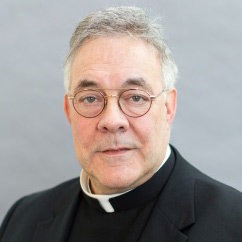Anytime I can get a progressive/dissenting Catholic magazine/blog like the Jesuit-run America simultaneously to quote papal documents, defend the Magisterium of the Catholic Church, embrace the Natural Law and even yearn for a theological investigation “by those charged with oversight for the Church’s doctrine” of a writer suspected of heresy, I consider that I have had a good day.
And to think that all this was prompted by two sentences of mine quoted in a New York Times story on an attempt by adjunct professors at Pittsburgh’s Duquesne University to form a union! Times reporter Mark Oppenheimer asked how I made sense of the resistance on the part of Duquesne, a Catholic University, to unionizing efforts by adjunct professors in light of the Church’s teaching about unions. We had a pleasant half hour talk on the subject in which I first explained that the Church generally looked favorably on unions – certainly not all of them, at all times or in all places, and not at all they do, and not as an end in themselves, but rather for the well-being of those workers and their families (i.e., that the Church’s support for unions is contingent). This favorable bias does not mean that workers are obligated to join a union, nor that management is obligated to accept the terms of a union. The right to join a union, in Church teaching, is rooted in the natural right of association, which of course also means that people have the right not to associate. It all boils down to the details of the specific case, meaning that Duquesne was probably considering the ever-rising costs of education and its impact on the lives of students and their families.
It was in this context that I uttered what the America magazine/blog writer Vincent Miller deemed offensive when I observed that Pope Leo XIII wrote Rerum Novarum, “In the industrial revolution, [when] the church was concerned about communism, and not just capitalism but savage capitalism . . . People were being brutalized. That’s just not the case in Pittsburgh today.”
From this Mr. Miller jumps to the conclusion that by saying that Leo’s observations of the circumstances for workers in 1891 were historically contingent, I am somehow arguing that what Leo said has no bearing today. Now, that is a particularly odd reaction because the entire thrust of Leo’s encyclical, beginning with its title, was precisely aimed at looking around at the “new things” (Rerum Novarum) that were emerging in his day, and reflecting upon them in the light of Scripture, Tradition and the Natural Law. If the situation in Pittsburgh and the graduate students teaching part time courses in 2012 is remotely comparable to the subsistence living conditions under which many workers lived in the latter part of the 19th century, this has somehow escaped my notice.
Nonetheless, I am delighted to see Mr. Miller is vigilant about the Church teaching and his citations from magisterial texts; not a single line of any of those cited do I disagree with. I wonder if Mr. Miller would say the same about this text, from Laborem Exercens, where Blessed John Paul II wrote: “Unions do not have the character of political parties struggling for power; they should not be subjected to the decision of political parties or have too close links with them.” Or what he makes of Paul VI’s caution about unions when he wrote in Octogesmia adveniens (no.14): “Their activity, however, is not without its difficulties. Here and there the temptation can arise of profiting from a position of force to impose, particularly by strikes – the right to which as a final means of defense remains certainly recognized – conditions which are too burdensome for the overall economy and for the social body, or to desire to obtain in this way demands of a directly political nature.”
Further reading: Liberating Labor: A Christian Economist’s Case for Voluntary Unionism by Charles W. Baird. Available in the Acton Bookshoppe.

